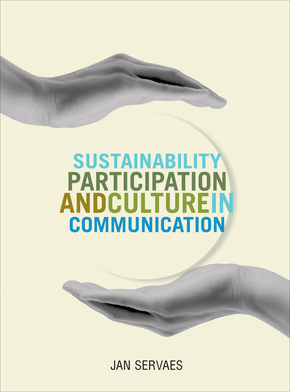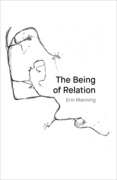Sustainability, Participation and Culture in Communication (Book)
Edited by Jan Servaes
At a time when sustainability is on everyone’s lips, this edited collection is one of the first to offer an overview of sustainability and communication issues from a social development perspective.
Edition
At a time when sustainability is on everyone’s lips, this volume is one of the first to offer an overview of sustainability and communication issues – including community mobilization, information technologies, gender and social norms, mass media, interpersonal communication and integrated communication approaches – from a development and social change perspective. Drawing on contemporary theories of communication as well as real-world examples from development projects around the world, the contributors in this collection showcase the increasing richness and versatility of communication research and practice. Together, they make a case for adopting a more comprehensive perspective on communication in the areas of development and social change.
Jan Servaes is the UNESCO Chair in Communication for Sustainable Social Change at the University of Massachusetts, USA.
Introduction: The Kaleidoscope of Text and Context in Communication – Jan Servaes
Chapter 2: Powerful Beyond Measure? Measuring Complex Systemic Change in Collaborative Settings – Adinda Van Hemelrijck
Part I: Sustainable Social Change
Chapter 3: The Global Agenda: Technology, Development, and Sustainable Social Change – Toks Dele Oyedemi
Chapter 4: ICTs and Mobile Phones for Development in Sub-Saharan African Region – Tokunbo Ojo
Chapter 5: Fair-Trade Practices in Contemporary Bangladeshi Society: The Case of Aarong – Fadia Hasan
Chapter 6: Asserting Contested Power: Exploring the Control-Resistance Dialectic in the World Trade Organization’s Discourse of Globalization – Rachel Stohr
Part II: (New) Media For Social Change
Chapter 7: Revolutions, Social Media, and the Digitization of Dissent: Communicating Social Change in Egypt – Emily Polk
Chapter 8: Two Cases and Two Paradigms: Connecting Every Village Project and CSO Web2.0 Project in China – Song Shi
Chapter 9: From Liberation to Oppression: Exploring Activism through the Arts in an Authoritarian Zimbabwe – Verity Norman
Part III: Culture and Participation
Chapter 10: Right to Communicate, Public Participation, and Democratic Development in Thailand – Boonlert Supadhiloke
Chapter 11: The Child Reporters Initiative in India: A Culture-Centered Approach To Participation – Lalatendu Acharya and Mohan Jyoti Dutta
Chapter 12: Advancing a Pedagogy of Social Change in Post-Katrina New Orleans: Participatory Communication in a Time of Crisis – David J. Park and Leslie Richardson
Chapter 13: Gender as a Variable in the Framing of Homelessness – Solina Richter, Katharina Kovacs Burns, Ramadimetja Shirley Mogale, and Jean Chaw-Kant
Part IV: Health Communication
Chapter 14: Understanding the Spread of HIV/AIDS in Thailand – Patchanee Malikhao
Chapter 15: Framing Illness and Health on the USAID Website for Senegal – Joelle Cruz
Chapter 16: Communication for Social Change in Kenya: Using DVD-led Discussion to Challenge HIV/AIDS Stigma among Health Workers – Katrina Phillips and Betty Chirchir
Chapter 17: Eff ect of a Public Service Announcement on Couple Testing for HIV in Uganda on Beliefs and Intent to Act – Jyotika Ramaprasad
Chapter 18: Crime and Punishment: Infi delity in Telenovelas and Implications for Latina Adolescent Health – Tilly A. Gurman
Conclusion: Communication for Sustainable Social Change Is Possible, but not Inevitable – Jan Servaes
Chapter 2: Powerful Beyond Measure? Measuring Complex Systemic Change in Collaborative Settings – Adinda Van Hemelrijck
Part I: Sustainable Social Change
Chapter 3: The Global Agenda: Technology, Development, and Sustainable Social Change – Toks Dele Oyedemi
Chapter 4: ICTs and Mobile Phones for Development in Sub-Saharan African Region – Tokunbo Ojo
Chapter 5: Fair-Trade Practices in Contemporary Bangladeshi Society: The Case of Aarong – Fadia Hasan
Chapter 6: Asserting Contested Power: Exploring the Control-Resistance Dialectic in the World Trade Organization’s Discourse of Globalization – Rachel Stohr
Part II: (New) Media For Social Change
Chapter 7: Revolutions, Social Media, and the Digitization of Dissent: Communicating Social Change in Egypt – Emily Polk
Chapter 8: Two Cases and Two Paradigms: Connecting Every Village Project and CSO Web2.0 Project in China – Song Shi
Chapter 9: From Liberation to Oppression: Exploring Activism through the Arts in an Authoritarian Zimbabwe – Verity Norman
Part III: Culture and Participation
Chapter 10: Right to Communicate, Public Participation, and Democratic Development in Thailand – Boonlert Supadhiloke
Chapter 11: The Child Reporters Initiative in India: A Culture-Centered Approach To Participation – Lalatendu Acharya and Mohan Jyoti Dutta
Chapter 12: Advancing a Pedagogy of Social Change in Post-Katrina New Orleans: Participatory Communication in a Time of Crisis – David J. Park and Leslie Richardson
Chapter 13: Gender as a Variable in the Framing of Homelessness – Solina Richter, Katharina Kovacs Burns, Ramadimetja Shirley Mogale, and Jean Chaw-Kant
Part IV: Health Communication
Chapter 14: Understanding the Spread of HIV/AIDS in Thailand – Patchanee Malikhao
Chapter 15: Framing Illness and Health on the USAID Website for Senegal – Joelle Cruz
Chapter 16: Communication for Social Change in Kenya: Using DVD-led Discussion to Challenge HIV/AIDS Stigma among Health Workers – Katrina Phillips and Betty Chirchir
Chapter 17: Eff ect of a Public Service Announcement on Couple Testing for HIV in Uganda on Beliefs and Intent to Act – Jyotika Ramaprasad
Chapter 18: Crime and Punishment: Infi delity in Telenovelas and Implications for Latina Adolescent Health – Tilly A. Gurman
Conclusion: Communication for Sustainable Social Change Is Possible, but not Inevitable – Jan Servaes
'The strength of the text is the fact that it is one of the first to offer a discussion on communication issues from a development and social change perspective within a twenty-first century context'
Related Titles














